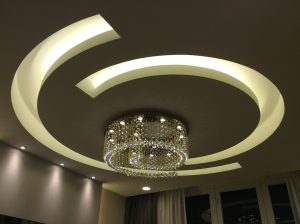Introduction
The magic chandelier is a breathtaking piece of lighting that has captivated audiences for centuries. It is an exquisite fixture that appears to be more than just a light source; it is a work of art that illuminates a room in a way that no other lighting fixture can. In this article, we will explore the history, design, and technology behind the magic chandelier, and delve into the mystique that surrounds this enchanting piece of art.
History of the Chandelier
The chandelier has evolved from simple candle holders to ornate lighting fixtures that illuminate grand halls and palaces. The word “chandelier” originated from the French word “chandelle,” which means candle. The first chandeliers were constructed from wood and were used to hold candles to provide light in a room. As time passed, metal was incorporated into chandelier designs, and glass replaced candles as a light source.
In the 14th and 15th centuries, chandeliers were designed to hang from the ceiling and were adorned with crystals and other decorative elements that reflected the light produced by candles. These chandeliers were considered works of art and were often commissioned by wealthy families and royalty.
The Magic Chandelier
The magic chandelier is a modern interpretation of the traditional chandelier, and it incorporates technology to create an enchanting and awe-inspiring experience. Magic chandeliers incorporate LED lights, making them energy-efficient and long-lasting. They also feature programmable lighting sequences and color-changing capabilities, allowing for a custom lighting experience.
Magic chandeliers are versatile and can be used to produce a variety of lighting effects. They can be programmed to produce a soft glow or a dramatic light show with varying levels of intensity. They are perfect for use in grand halls, theaters, and other large spaces, where they can create a stunning and captivating visual experience.
Design and Technology Behind the Magic Chandelier
Magic chandeliers are constructed using a variety of materials, including glass, metal, and crystal. They are designed to be visually appealing from all angles, with intricate patterns and shapes that reflect the light produced by the LEDs.
The LEDs used in magic chandeliers are controlled by a computer program that allows for precise control over the lighting effects. The program can be programmed to produce specific lighting effects and can be controlled remotely.
The technology behind the magic chandelier has advanced significantly in recent years. The latest magic chandeliers use wireless technology to communicate with each other, creating a seamless lighting experience. They can also be controlled using a smartphone app, allowing for easy customization and control of the lighting effects.
The Mystique of the Magic Chandelier
The magic chandelier is more than just a lighting fixture; it is a work of art that creates a mystical experience. The patterns and shapes created by the light produced by the LEDs are mesmerizing and captivating, and they can create a calming and peaceful atmosphere.
Magic chandeliers are often used in events such as weddings, galas, and other special occasions, where their stunning visual effects can create a memorable and impactful experience for attendees. They are also used in public spaces such as hotels and casinos, where they can create a luxurious and sophisticated atmosphere.




More Posts
Enhance Your Bathroom with a Ceramic Glazed Table Lamp
Enhance Your Outdoor Space with a Solar LED Table Lamp
Nordic-Inspired Wooden Table Lamp with Linen Lampshade